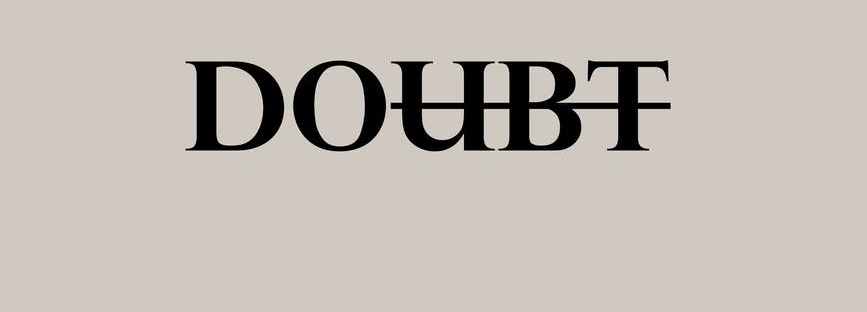Assertiveness is more or less saying what’s on your mind in a manner that does not lower the importance of yourself or others.
It’s also important to point out that assertiveness is NOT the same thing as aggression. It is NOT getting your way. It is NOT manipulation in any form.
Perhaps Robert Alberti and Michael Emmons’ definition of assertiveness will best illustrate what I am trying to say:
Assertive behavior promotes equality in human relationships, enabling us to act in our own best interests, to stand up for ourselves without undue anxiety, to express honest feelings comfortably, to exercise personal rights without denying the rights of others.
That definiton really hit home for me. Imagine that. Equality and effective communication are at the core of assertiveness. I’m not trying to be sarcastic. It’s just that it’s so simple. What is even more incredible is that their book was originally written in the 1970s. It has been updated numerous times to change with the changing times. Interestingly, I’m working from the 2001 version of their book. How did they know that equality and effective communication would be in the forefront of people’s minds in 2021?
What really made me feel as if they knew me personally was this:
“Confronted with a difficult situation, lots of folks tend to respond non-assertively, thinking of an apporpriate comeback long after the opportunity has passed. Others react aggressively, and make a deep and negative impression that they often regret later. By developing a more adequate repertoire of assertive behavior, you may choose appropriate and self-fulfilling responses in a variety of situations.”
The non-assertive descripton describes me better. The few times that I yelled at people, it didn’t feel like me not to mention that it’s exhausting. However, we often make the mistake that being aggressive is the only way to get things done without being a doormat. Ever notice that cursing someone out in a big blow-up only raises the stress and tension for everyone invloved? I’m not trying to wipe all curse words off the face of the earth. But think about it. What does it really do? What type of results does it produce?
Interestingly, Alberti and Emmons point out that our relationships with peers aren’t the only relationships or social interactions that are important. There are a whole slew of misconceptions that we need to take a look at:
- Adults are more important than children
- Bosses are more important than employees
- Men are more important than women
- Whites are more important than People of Color
- Pysicians are more important than plumbers
- Teachers are more imortant than students
- Politicians are more important than voters
- Generals are more important than privates
- Winners are more important than losers
- Americans are more important than “foreigners”
The overall idea is that, yes, people may have certain authority, but those with authority are not more important than those who do not have authority. Similarly, those that look or speak differently are not above or below us. The same could be applied to education or any other criteria that might make us stand out.
Before I wrap up this post, I want to give an example from their book:
DINING OUT
Akim and Letita are at dinner at a moderately expensive restaurant. Akim has ordered a grilled chicken breast; but when the [chicken] is served, he finds it overcooked and dry. His action is:
Nonassertive: Akim grumbles to Letitia about the “burned” meat, and vows that he won’t patronize this restaurant in the furute. He says nothing to the waitress, responding, “Fine!” to her inquiry, “Is everything all right?” His dinner and evening are spoiled, and he feels angry with himself for taking no action. Akim’s estimate of himself and Letitia’s estimate of him are both deflated by the experience.
Agressive: Akim angrily summons the waitress to his table. He berates her loudly and unfairly for not complying with his order. His actions ridicule the waitress and embarrass Letitia. He demands and receives another chicken breast, this one more to his liking. He feels in control of the situation, but Letitia’s embarrassment creates friction between them and spoils their night out. The waitress is humiliated and angry for the rest of the evening.
Assertive: Akim motions the waitress to his table. He shows her the overcooked meat, and asks politely but firmly that it be retrurned to the kitchen and replaced. The waitress apologizes for the error, and shortly returns with a properly cooked order of chicken. Akim and Letitia enjoy dinner and Akim feels satisfaction with himself. The waitress is pleased with a satisfied customer and a generous tip.
Personally, I’ve learned that whatever the situatoin might be, it’s important to remember that equality is at the center of every interaction. The above information makes me wish I had discovered assertiveness years ago. Interestingly, I knew from the myriad of TV shows and movies that I have seen that communication is key in romantic relationships. It was sort of mind-blowing to realize that, as I’ve said, you can apply this knowledge to almost any social interaction.
My goal for this post was to help all of your interactions go smoothly and give you a little more confidence. The material/discussion above came from Your Perfect Right: Assertiveness and Equality in Your Life and Relationships by Robert Alberti and Michael Emmons. When I think back to when my group leader reccommended that book, I’m almost certain that he reccommended it to the group as a whole. Regardless, the tips given in the post can be applied to anyone who is reading it. My hope for both myself and others is that we grow a little and are able to move forward.
Stay tuned for my next nugget of wisdom that I find. 🙂
Best of luck,
Vanessa









